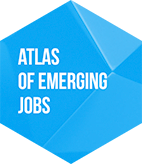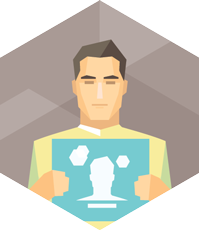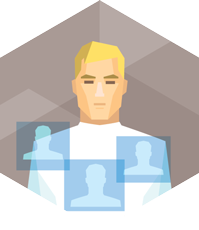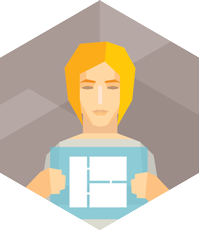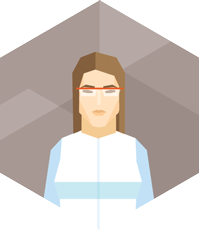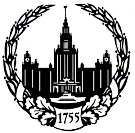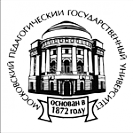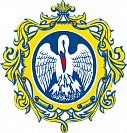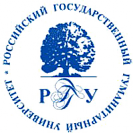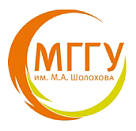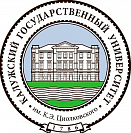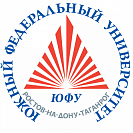Education
Information technology is one of the fastest-growing sectors of the economy. Changes occurring in the sector open up new and seemingly incredible opportunities in other areas such as design, transportation, staff and resource management, marketing, and education.
A number of significant processes are now happening in the IT sector. To begin with, telecommunication solutions provide links between various parts of the world. The volume of data transmitted over networks is increasing, leading to the improvement of data processing solutions. The industry is going to be revolutionized by Big Data, which will help solve the problems of early diagnosis, or create computer systems for simultaneous interpreting, taking into account all linguistic peculiarities.
Also, digital solutions are becoming increasingly mobile and user-friendly. With almost every family owning a laptop computer and every other person on the planet using a smartphone, in ten years’ time every urban citizen will have at least five or six interconnected wearable gadgets, e.g. augmented reality glasses, a fitness bracelet, and a smartphone with a smart wallet feature. Gadgets will take care of your athletic shape and daily regimen, help you organize your timetable, and suggest an optimal solution in various situations, e.g. where to have breakfast in a given part of town based on your dietary preferences, or what to do in the evening when you are in a particular mood.
Growing data volumes will call for new security systems, data filtering and protection tools, not least because the proliferation of cloud-based systems increases the dangers of a data leak. Within the next 10 years, technologies will appear for precise identification of Internet users, with each and every click tracked. Technologies from science fiction and spy films will become a reality. The user of a device will be identified not only by his/her fingerprints or with a retina scan, but also through a DNA test. This will lead to deanonymization and total transparency, which, on one hand, will have a dramatic effect on Internet behaviour, and on the other, will cause protests and calls for anonymity.
Technologies will develop for checking data traffic integrity and information reliability, and verifying its sources. Demand will arise for insurance institutions providing protection against risks related to virtual environments, as well as for consulting agencies dealing with user security and image on the Internet. With many documents (even identification cards) gradually translated into electronic form, personal data may come under threat of total loss due to hacking attacks or system failures, which calls for new data protection solutions.
The increasingly powerful cyber-attacks against important facilities such as banks, telecommunications, media publishers, etc., are raising the question of their information security. In the distant future, programmes will become capable of cyber crime, on par with humans.
The boundaries between virtual reality and the physical world are becoming fuzzier, which means that the digital society will be organized in roughly the same way as in the real world, including state borders and government control. The “digital gap” between people (in terms of computer literacy) will create a new type of social stratification, leading to the emergence of special programmes for mass education in information and communication technology. Laws regulating the cyberspace will appear everywhere. “Electronic” governments will become fully operational and more interactive.
Moreover, virtual reality is turning into an intermediary between the user and the real world, with more and more remotely controlled smart devices and machines. This makes life easier, though it means that the virtual world can be used to attack physical objects. For example, criminals will be able to remotely block, damage or destroy a production line or transpiration network. The automation of processes is increasing the number of sensors connected to data networks to monitor system states. This, in turn, makes the infrastructure more vulnerable. For this reason, strong protection techniques need to be developed for smart networks and the Internet of things, along with alternative ways to manage them in a critical situation.
Innovations in other industries appear at a juncture with IT, spawning multiple potential cross-sector breakthrough points. However, the development and production of hardware, software and security systems still remain priorities in the sector.
Professions
Desiger of consciousness training tools
Creates programmes and equipment (e.g. biofeedback devices) to train users in entering productive states of consciousness (high focus, relaxation, increased creative abilities, etc.). For example, Wild Divine sells devices and software to teach users concentration, relaxation and awareness. There are also biofeedback devices, developed specially for lucid dreaming.
Trends
Professional skills and abilities
Game educator
Specialist in the development of educational programmes based on game techniques, acting as a game character. This specialist will replace traditional teachers at school. Russia has long-standing traditions of game-based education. The promotion of games in schools is currently restricted mostly by regulatory framework.
Trends
Professional skills and abilities
Educational pathway designer
Professional in building an educational “route” for new specialists, made up of courses provided by educational institutions, including online programmes, as well as trainers, simulators, internships, etc. Based on those, he/she develops an educational track, taking into account the psychological type, abilities, and goals of a particular person.
Trends
Professional skills and abilities
Mind fitness coach
Specialist who develops programmes for training personal cognitive skills (e.g. memory, concentration, reading speed, mental mathematics, etc.) using special programmes and devices, taking into account the psyche and purposes of the user. Such programmes exist already, for example, the Mind Fitness Training Institute in Virginia offers all those willing a seven-day course to train their cognitive skills, while Lumosity has developed over 40 online cognitive training games.
Trends
Professional skills and abilities
Ecopreacher
Specialist tasked with developing and conducting educational and instructional programmes for children and adults, teaching them to behave in a way to reduce impact on the environment (no excessive consumption, separate waste disposal, environmentally conscious lifestyle, etc.), as well as programmes for industrial enterprises on more eco-friendly industrial practices.
Trends
Professional skills and abilities
Project training organizer
Professional in the development and organization of training programmes focused on the preparation and implementation of projects in the real sector of the economy, with the study of theoretical material as a mandatory support activity.
Trends
Professional skills and abilities
Tutor
Educator engaged in supporting individual development of students within disciplines of an educational programme, elaborating individual tasks, and providing career guidance.
Trends
Professional skills and abilities
Game master
Specialist in developing and organizing educational games (business, history, science fiction, etc.) and game support with the use of simulators. The educational potential of games has been studied in developed countries since the 2000’s (in 2001, MIT and Microsoft launched the joint project Games-to-Teach), while lately, gamification (application of game mechanics in non-game processes) has become a noticeable trend. In 2013, the educational portal Coursera published the course Computer Games and Education, and the University of New York even offers a master’s programme for game masters. In Russia, the development of educational games is promoted by the Russian Association for Games in Education.
Trends
Professional skills and abilities
Moderator
Specialist who organizes group discussions of an issue or collective creative activities to help students learn new material during their practical activities. The set of skill required in social science, psychology and marketing is becoming sought after in education. For example, in 2014, the U.S.-based Corporate Education Group, specializing in consulting and corporate training, posted a vacancy for a virtual course moderator, while ATIM worked out a series of training courses for mentors and moderators, including a course in online commerce. Moderators are actively engaged in the Russian educational sphere, e.g. most educational programmes of the SKOLKOVO Moscow School of Management involve moderators.
Trends
Professional skills and abilities
Startup mentor
This professional has experience in launching their own startup projects, supervising new startup teams, teaching them business skills on case examples from his or her own projects.In the West, the mentor is a developed specialty, whereas in Russia it is just beginning to grow popular due to the poor condition of small business.Nevertheless, business incubators and accelerators (e.g.the HSE business incubator, Skolkovo Startup Academy, and the venture academy LaunchGurus) already have their own mentorship programmes.Independent specialists’ services are also in demand.
Trends
Professional skills and abilities
Educational online platform coordinator
Specialist in an educational institution or independent educational project with competences in online teaching, supporting the development of online courses on particular subjects or disciplines; organizing and promoting specific courses or standard academic pathways.The coordinator moderates communication between teachers and students within courses or platforms and defines requirements for platform improvements.Some Russian universities have established entire divisions in charge of these functions.For example, MIPT has the Laboratory of Innovative Educational Techniques, and the Higher School of Economics has the Educational Environment Development Centre.This has allowed the universities to develop their own online courses for the Coursera platform.Russian online platforms, such as Universarium and Eduson, are also developing.
